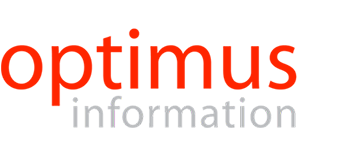Overview
Organizations today rely heavily on voice communication to make decisions, engage customers, and align teams. Yet despite its importance, the content of these conversations often goes unrecorded, unanalyzed, and under-utilized. Critical insights are buried in call recordings or left to manual interpretation, slowing follow-up, introducing inconsistency, and making it difficult to scale.
Recognizing this challenge, Optimus Information developed Vocalynx, an AI-powered Call Assistant built on Microsoft Azure. Vocalynx automatically transcribes calls, analyzes sentiment, summarizes key moments, and enables users to ask natural language questions about what was discussed, all within a secure, cloud-native platform. By transforming audio into insight, Vocalynx accelerates decision-making, reduces manual overhead, and brings structure to spoken conversations.
The Challenge
Organizations across industries faced mounting inefficiencies in how they processed voice-based communications. Despite investing in tools to record and store calls, most teams still relied on manual review to extract meaning — a process that was time-intensive, error-prone, and impossible to scale.
Common pain points included:
- Significant time spent reviewing and interpreting calls
- Inconsistent analysis due to subjective judgment
- Lack of visibility into decisions and follow-ups
- Delays between conversation and action
- Difficulty scaling analysis as communication volumes grew
What was needed was a secure, scalable solution that could automate the analysis of voice data, deliver insights quickly, and support follow-up through intelligent querying.
The Solution
Optimus built a cloud-native call intelligence platform using Azure’s AI capabilities. Vocalynx allows users to upload call recordings or capture live conversations through a web interface. Once captured, the solution uses Azure AI Speech Services to transcribe audio in real time. These transcripts are then processed by Azure AI Language and OpenAI GPT-4o to extract sentiment, summarize discussion points, and identify action items.
In addition to standard analysis, Vocalynx enables conversational search. Users can pose natural language queries, such as “What concerns were raised?” or “Did the client confirm next steps?”, and receive AI-generated responses based on the conversation.
All processing is performed securely in the cloud. No transcripts are persistently stored, ensuring strong data governance and alignment with organizational privacy requirements.
Key Capabilities
- Real-Time Transcription
Accurate conversion of recorded or live audio to text using Azure AI Speech Services. - Automated Insight Generation
Summarization, sentiment analysis, and extraction of key points using Azure AI Language and GPT-4o. - Conversational Querying
Natural language Q&A over transcripts, enabling fast access to decision points and action items. - Secure, Stateless Architecture
No persistent transcript storage; all results are processed and delivered in-app, ensuring confidentiality.
Multi Agent Architecture
The solution is entirely hosted on Microsoft Azure and designed for scalability, security, and zero infrastructure management.
| Component | Role |
|---|---|
| Azure Container Apps | Hosts frontend and backend services with auto-scaling |
| Azure AI Speech | Converts audio to text in real time |
| Azure AI Language | Performs sentiment analysis and key insights extraction |
| Azure OpenAI | Powers natural language querying over transcript data |
| Azure Key Vault | Manages secure access and secrets |
| Azure Monitor & Defender | Provides observability, governance, and compliance support |
This serverless architecture enables high availability and performance while minimizing operational complexity and risk.
Deployment
Vocalynx was deployed as a fully cloud-native, serverless web application built on Microsoft Azure. The implementation followed best practices for scalability, security, and governance, allowing for rapid development and minimal operational overhead.
Optimus led the end-to-end delivery, including architecture design, application development, infrastructure configuration, and post-launch support. Azure Container Apps were used to host both the web interface and the backend services, enabling automatic scaling based on usage patterns. Integration with Azure AI Speech, Azure AI Language, and Azure OpenAI allowed the platform to process both live and recorded conversations in real time.
All access credentials and secrets were secured using Azure Key Vault, while Azure Monitor and Microsoft Defender were implemented to ensure observability, compliance tracking, and infrastructure security. Importantly, no call transcript data was stored long-term, a key architectural decision that ensured strong data protection and reduced compliance risk.
With its serverless foundation, Vocalynx was not only quick to deploy but also inherently designed to support growth in both usage and functionality, without requiring additional infrastructure management.
The Results
Vocalynx has significantly improved how teams capture, understand, and act on spoken communication. Manual effort has been reduced across the board, enabling faster decision-making and consistent follow-up. AI-powered analysis ensures that every call is evaluated objectively regardless of who leads it or what tools are used.
Tangible Business Outcomes:
- Near-instant call insights reduce time-to-action
- Consistent summaries eliminate subjective interpretation
- Real-time sentiment scoring improves situational awareness
- No persistent data storage ensures strict security compliance
- Serverless scaling supports growing call volumes without added overhead
By automating and standardizing voice analysis, Vocalynx helps organizations unlock the value of every conversation.
Technologies Used
- Azure AI Speech Services
- Azure AI Language Services
- Azure OpenAI (GPT-4o)
- Azure Container Apps
- Azure Key Vault
- Azure Monitor
- Defender for Cloud
What’s Next
The next phase of development focuses on integrating Vocalynx into Microsoft Teams. After a call ends, users will receive a Teams notification with a summary, sentiment report, and action items, all embedded within an adaptive card.
Planned features include:
- Accessing transcripts and insights directly in Teams
- Running in-chat analysis using Copilot-style prompts
- Asking questions like “What did we agree to?” without leaving the workflow
This integration will bring real-time conversational intelligence directly into the collaboration tools teams already use.
Contact Optimus to learn how we can help you leverage Agentic AI & Cloud services.


